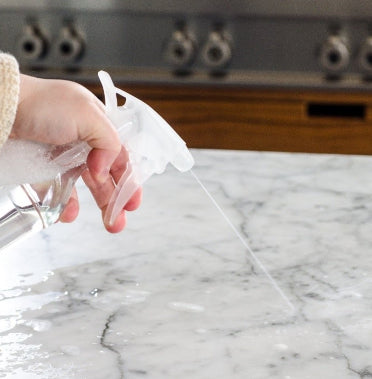
You might be in the habit of buying all-purpose cleaning supplies for your household chores. The labels on these products will say that they can be used to clean tons of different things.
Countertops, tile, wood, stainless steel, etc. Don’t believe it. Though it may seem like the spray is doing an adequate job, that’s just the thing. It’s almost certainly ONLY doing an adequate job. And in some cases, you may be damaging the finish on some surfaces by using such a product.
For example, not using a specific product designed for cleaning wood – and only wood – can damage it. Wood, leather, and stone are porous. Using “versatile” chemicals almost always do damage over time while it seems like it’s harmlessly cleaning it. Your house will look so much better if you use dedicated products. By dedicated we mean use a glass cleaner to clean glass. Clean toilets using a product that’s tasked to do that specific job. And most of the time, these specific products do the job much quicker compared to all-purpose products.
Here are the top 6 surfaces that you can’t clean with an all-purpose cleaner:
1. Glass
While an all-purpose cleaner can be used to clean glass, it won’t perform as well as a dedicated glass cleaner. When it comes to wiping down mirrors, windows, and other glass surfaces, a glass cleaner does a better job of dissolving oil and grease without creating streaks. While using the right glass cleaner, it’s also best to clean glass surfaces using a lint-free cloth rather than paper towels to avoid leaving any residue behind.
2. Toys
Anyone who has kids knows that pretty much anything they come into contact with requires frequent cleaning—including their toys. Because children have a tendency to put things in their mouths, however, it’s not prudent to use an all-purpose cleaner on their toys, especially small toys that are tempting to chew on. The chemicals in cleaning agents can be dangerous if ingested and may have adverse effects even in small quantities. Instead, wipe down toys with child safe, baby surface cleaner, or clean non-electronic plastic toys with toy cleaner especially made for this purpose.
3. Stone Surfaces
Stone countertops lend an elegant, upscale look to any kitchen or bathroom, but they can be a pain to clean. Because most stones are made up largely of calcium carbonate, it doesn’t pair well with acidic substances, which can corrode its surface. Unfortunately, many all-purpose cleaners contain vinegar or lemon juice, acids that can cause lasting damage to stone surfaces. Instead, use a product designed for cleaning stone, it will be worth it in the long run for protect that investment.
4. Wood Surfaces
Because wood surfaces may be unsealed, it’s best to avoid all-purpose cleaners, which are often filled with relatively harsh cleaning agents. To avoid staining and other damage, ideally, just use a little bit of water, or purchase a dedicated wood cleaner to do the job.
5. Stains
All-purpose cleaners are designed for maintenance cleaning, not stain removal. Whether you’re dealing with a hard or soft surface, a specially formulated stain remover is the best tool to get the job done. The process for removing stains varies depending on the surface in question and the product you choose makes all the difference.
